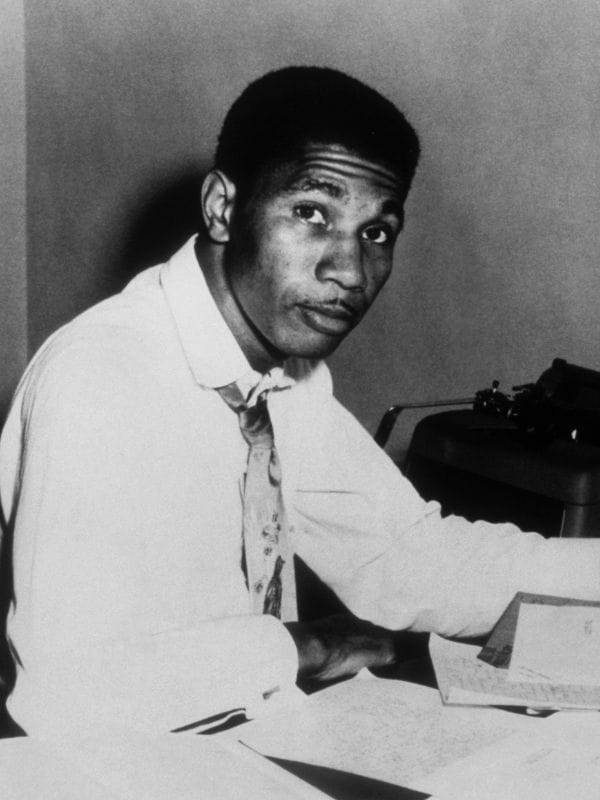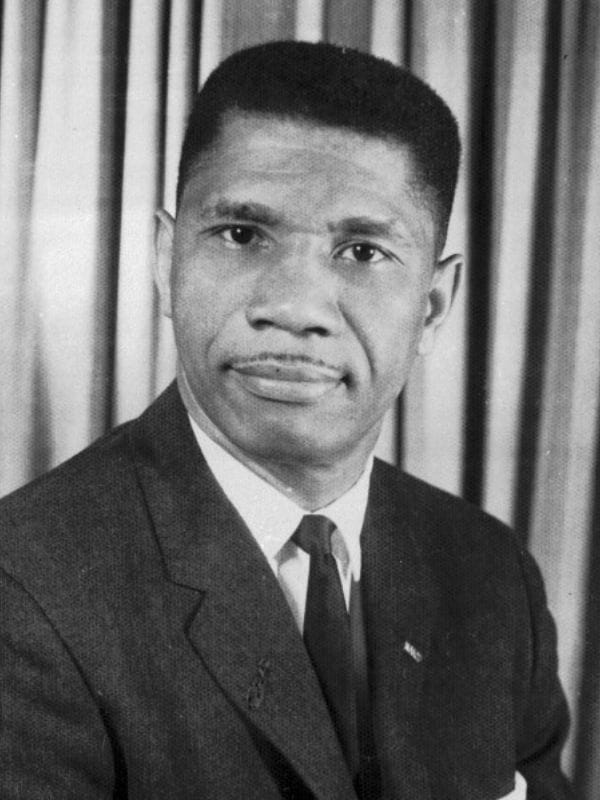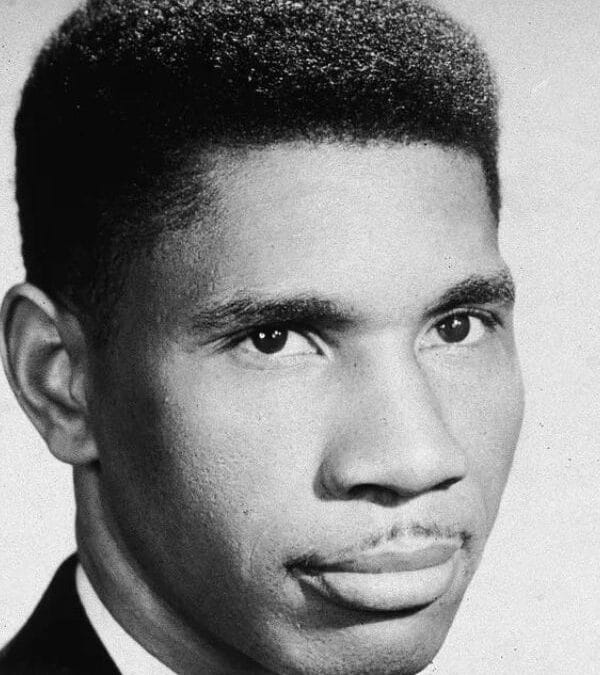Educating ourselves about the life and legacy of Medgar Evers is crucial in understanding the ongoing struggle for racial justice. Evers, a prominent civil rights activist, fought tirelessly against racial discrimination and injustice in America during the 1950s and 1960s. His fearless advocacy and ultimate sacrifice serve as a beacon of inspiration for today’s activists and advocates. By examining Evers’ strategies, perseverance, and unwavering dedication to equality, we can draw valuable lessons that are still relevant in the fight for racial equality in contemporary society.

Medgar Evers and the NAACP
Combating Segregation and Discrimination
Segregation was a reality in Medgar Evers’ Mississippi, but he and the NAACP were unyielding in their fight against it. They organized sit-ins, boycotts, and legal challenges to combat laws that enforced racial segregation and discrimination. Evers understood that to achieve racial justice, they had to directly confront the systems that upheld such injustices.
Voter Registration Efforts and Challenges
Registration of African American voters was a vital part of the NAACP’s strategy to empower the Black community in the South. Despite facing intimidation, violence, and bureaucratic obstacles, Evers and his colleagues persisted in their voter registration efforts. They believed that political participation was key to effecting lasting change in the South.
Their work in voter registration faced numerous challenges as African Americans were systematically disenfranchised through poll taxes, literacy tests, and other discriminatory practices. However, their persistence eventually laid the groundwork for significant gains in voting rights for African Americans during the civil rights movement.
The Assassination of Medgar Evers
Impact on the Civil Rights Movement
Some moments in history serve as a catalyst for change, and the assassination of Medgar Evers on June 12, 1963, was one such moment. Evers, a prominent civil rights activist in Mississippi, was gunned down outside his home, sparking outrage and galvanizing the Civil Rights Movement. His death fueled the determination of activists and supporters to continue the fight for racial equality and justice.
Legal Repercussions and Retrospective Justice
Assassination of Medgar Evers sparked a fervent legal battle for justice. It took over 30 years to finally bring Evers’ killer, Byron De La Beckwith, to justice. Beckwith’s first two trials resulted in hung juries, but in 1994, he was finally convicted of Evers’ murder and sentenced to life in prison. This belated justice highlighted the systemic racism and challenges faced by civil rights activists seeking justice in the Jim Crow era.
Legal actions in response to the assassination of Medgar Evers marked a crucial moment in the struggle for civil rights and racial justice. The long road to Beckwith’s conviction showcased the perseverance and determination of those seeking accountability for crimes committed in the name of racial hatred. It underscored the importance of legal institutions in upholding justice and ensuring that acts of violence and discrimination do not go unpunished.

The Legacy of Medgar Evers
Educational and Institutional Commemorations
An enduring legacy of Medgar Evers is the numerous educational and institutional commemorations established in his honor. Schools, colleges, and museums have dedicated spaces and programs to educate the public about Evers’ life, work, and ultimate sacrifice in the fight for racial justice. These institutions serve as a reminder of the importance of upholding civil rights and the ongoing struggle for equality.
Continuing Influence on Civil Rights Advocacy
Educational efforts continue to draw inspiration from Medgar Evers, with his legacy serving as a beacon for those involved in civil rights advocacy. His fearless dedication to justice and equality has motivated generations of activists to speak out against discrimination and fight for marginalized communities. The principles Evers stood for serve as a guiding light in the ongoing battle for racial justice.
Another aspect of Medgar Evers’ continuing influence on civil rights advocacy is the way his story has been integrated into the curriculum of schools and universities. Students across the country study Evers’ life, activism, and impact on American history, ensuring that his contributions are never forgotten and that future generations are inspired to continue the fight for racial equality.
Lessons for Today
The Importance of Persistence in Social Justice Movements
Justice in social justice movements is often a slow and arduous process that requires unwavering determination and perseverance. Medgar Evers’ dedication to the fight for racial equality serves as a poignant reminder of the importance of persistence in overcoming obstacles and effecting real change. His commitment to seeking justice for African Americans in the face of relentless opposition exemplifies the power of staying the course even in the most challenging of circumstances.
Applying Evers’s Strategies to Contemporary Issues
On a broader scale, the strategies employed by Medgar Evers during the Civil Rights Movement can serve as a blueprint for addressing contemporary issues of inequality and discrimination. By utilizing tactics such as grassroots organizing, nonviolent resistance, and strategic advocacy, activists today can follow in Evers’ footsteps to confront systemic injustices and advocate for the rights of marginalized communities.
For instance, lessons from Evers’s emphasis on community engagement and coalition-building can be valuable in addressing current social justice issues such as police brutality, economic disparities, and educational inequities. By mobilizing communities, fostering solidarity among diverse groups, and engaging in sustained advocacy efforts, modern-day activists can draw inspiration from Evers’s legacy to confront and challenge ongoing injustices.
To wrap up
Now is the time to reflect on the powerful legacy of Medgar Evers and the lessons we can learn from his fight for racial justice. His courage, determination, and unwavering commitment to equality serve as an inspiration for us to continue the ongoing battle against racism and injustice in our society today. By following Evers’ example of speaking out against oppression and standing up for what is right, we can work towards creating a more just and equitable future for all. Let us remember his sacrifice and carry forward his legacy by actively promoting equality, advocating for change, and never backing down in the face of adversity. Medgar Evers’ fight for racial justice continues to resonate with us today, reminding us of the urgency and importance of standing up against inequality wherever we may find it.
FAQ
Q: Who was Medgar Evers and why is he important in the fight for racial justice?
A: Medgar Evers was a prominent civil rights activist who worked tirelessly to end segregation and secure equal rights for African Americans. He played a key role in desegregating schools and public facilities in Mississippi. His assassination in 1963 made him a martyr for the civil rights movement and inspired others to continue the fight for racial justice.
Q: What were some of the challenges Medgar Evers faced in his fight for racial justice?
A: Medgar Evers faced numerous challenges in his fight for racial justice, including threats to his life, harassment from white supremacists, and institutionalized racism that sought to maintain segregation and deny African Americans their rights. Despite these challenges, Evers remained dedicated to the cause and continued his activism until his tragic death.
Q: What are some lessons we can learn from Medgar Evers’ activism for racial justice today?
A: Some lessons we can learn from Medgar Evers’ activism include the importance of persistence in the face of adversity, the power of grassroots organizing and community mobilization, and the need to challenge systems of oppression and inequality. Evers’ commitment to nonviolent resistance and his unwavering dedication to justice serve as inspirational examples for activists today.
Q: How did Medgar Evers’ work contribute to the broader civil rights movement in the United States?
A: Medgar Evers’ work laid the groundwork for the broader civil rights movement in the United States by bringing national attention to the struggle for racial justice in the South. His efforts to desegregate schools, register African American voters, and challenge discriminatory laws paved the way for landmark civil rights legislation such as the Civil Rights Act of 1964 and the Voting Rights Act of 1965.
Q: What is the legacy of Medgar Evers and how does it continue to impact the fight for racial justice today?
A: The legacy of Medgar Evers lives on in the ongoing fight for racial justice and equality. His courage, sacrifice, and commitment to justice continue to inspire activists and advocates working to dismantle systemic racism, address police brutality, and promote social and economic equity. Evers’ legacy reminds us of the importance of standing up against injustice and fighting for a more just and equitable society for all.
See also our article : George Stinney: Victim of Blind Justice?










